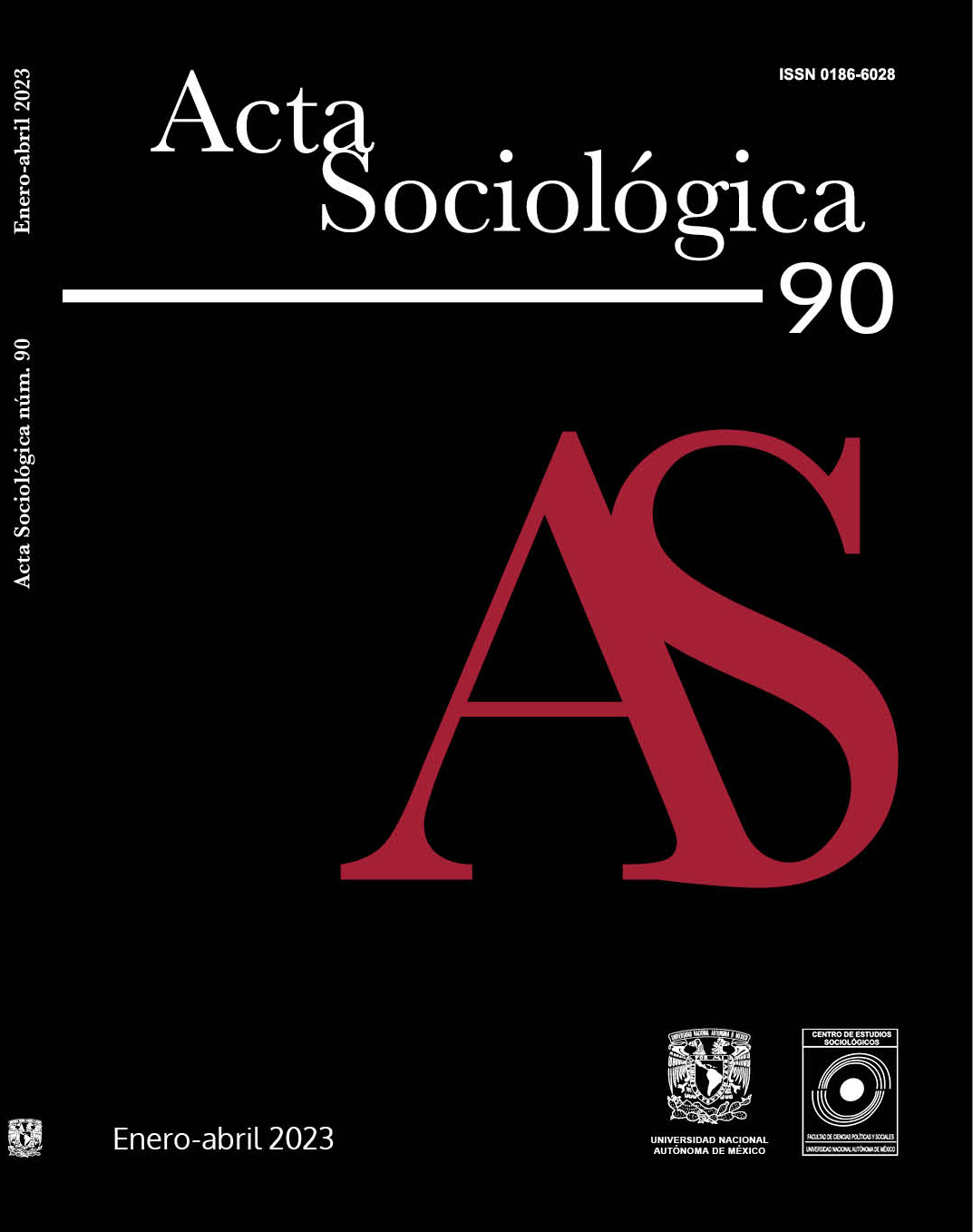Sociología del temor al delito en la pandemia: ¿Qué ocurrió en los hogares mexicanos?
Contenido principal del artículo
Resumen
Desde la Sociología del temor al delito se estudia cómo cambió la percepción de inseguridad en los hogares mexicanos en el contexto de la pandemia por COVID-19. A partir de las encuestas de victimización urbana se analiza la transformación de esta percepción en México durante 2020. Se encuentra que contrario a lo esperado por la literatura, esta percepción disminuyó, por lo que se plantean las preguntas: ¿Qué ocurrió en los hogares mexicanos? ¿Por qué se redujo la percepción de inseguridad durante la pandemia por COVID-19?
Para explicar este cambio se exploran variables criminológicas relacionadas a la percepción de inseguridad como el robo a casa habitación y la inversión en medidas de seguridad para tornar las viviendas más seguras. Paralelamente se indagan otras variables asociadas al aislamiento social y el repliegue de la población a las casas que, como efecto de la pandemia, cambiaron la vida en sociedad a nivel global. Se concluye que en este contexto, los hogares se posicionaron como espacios centrales para ejercer el derecho a quedarse en casa y evitar el contagio, y además se resignificaron en el imaginario social.
